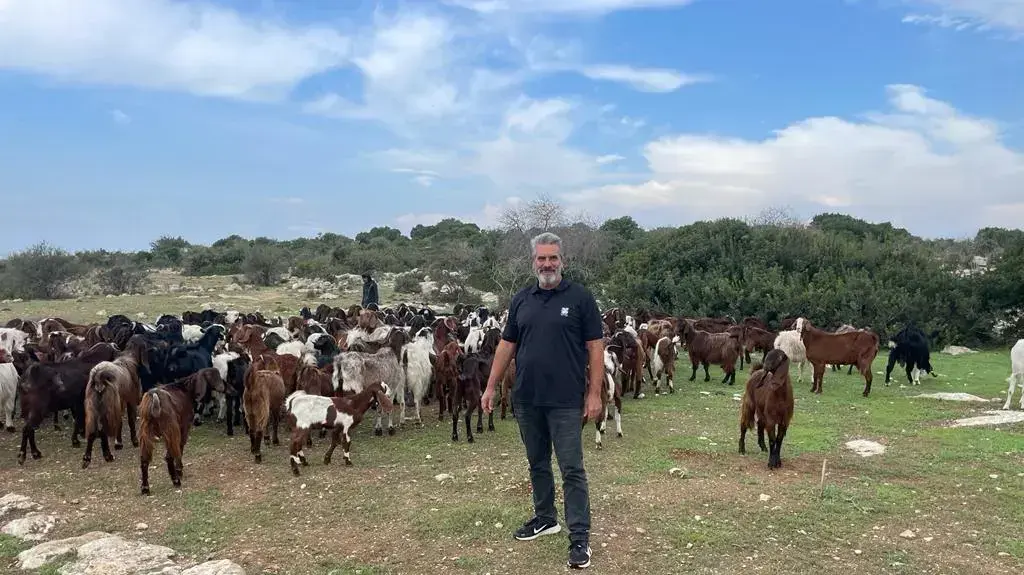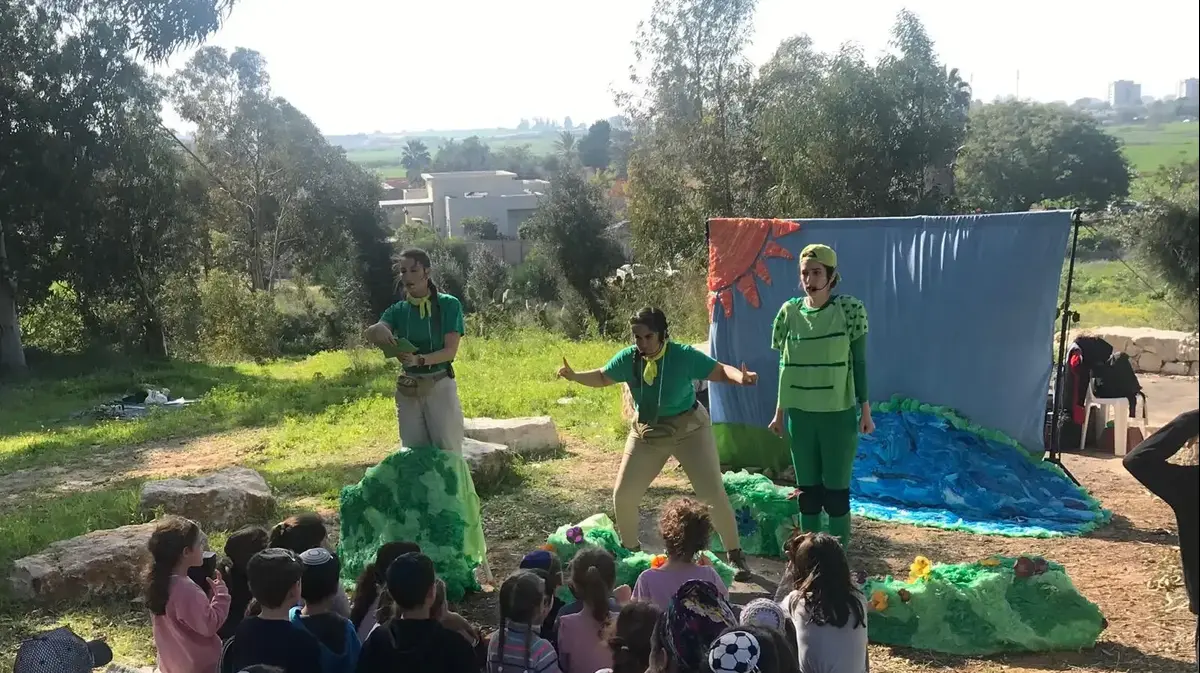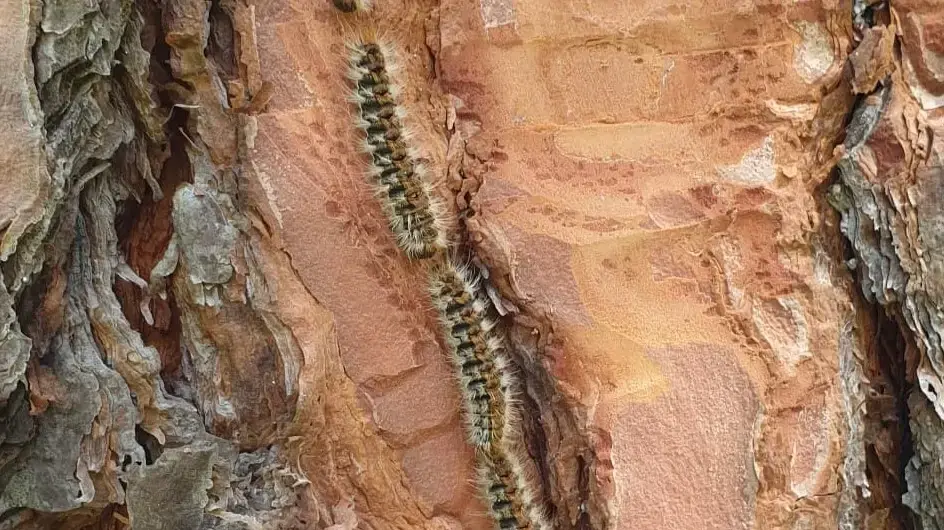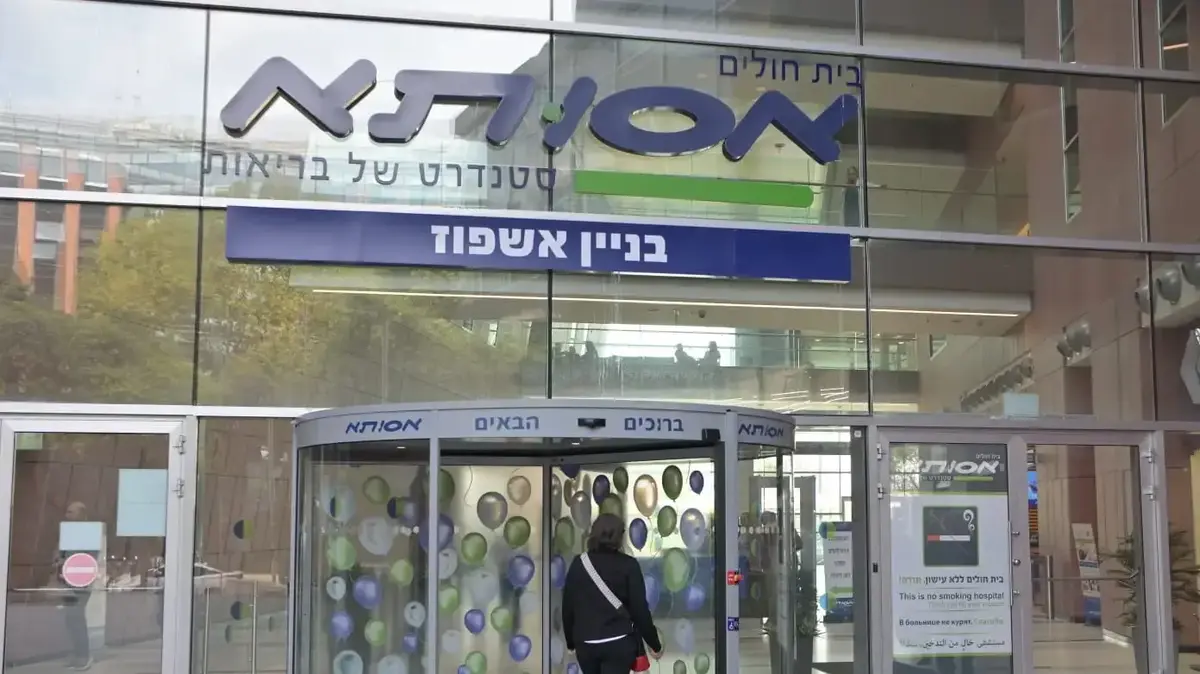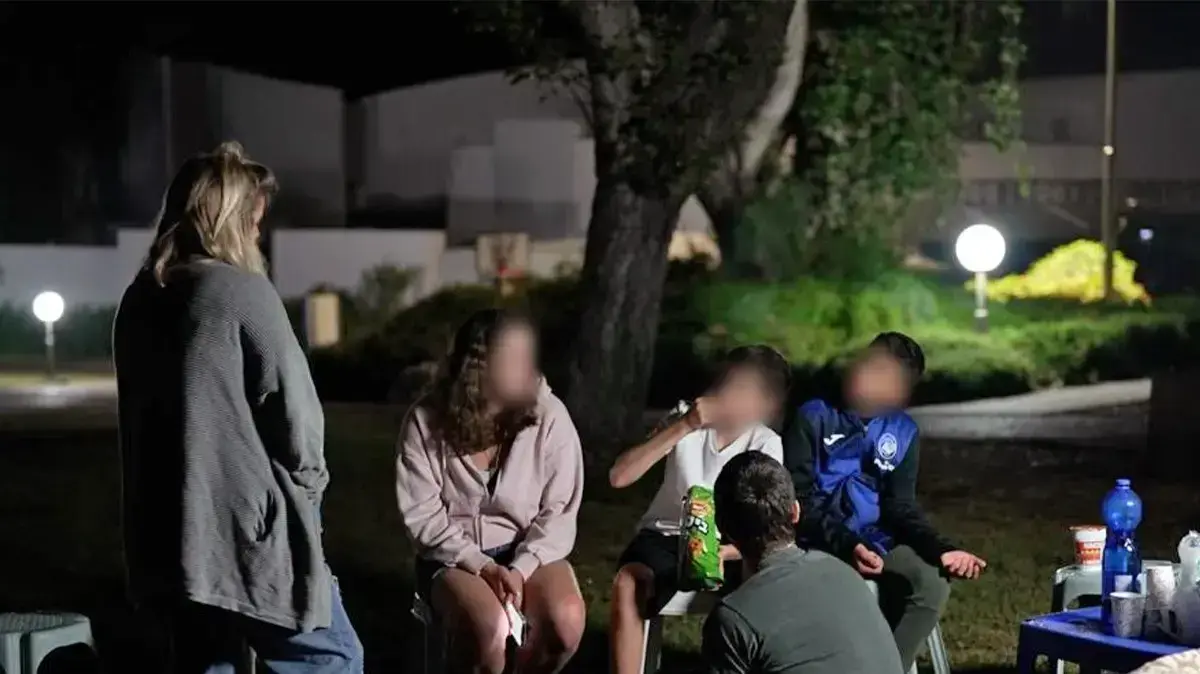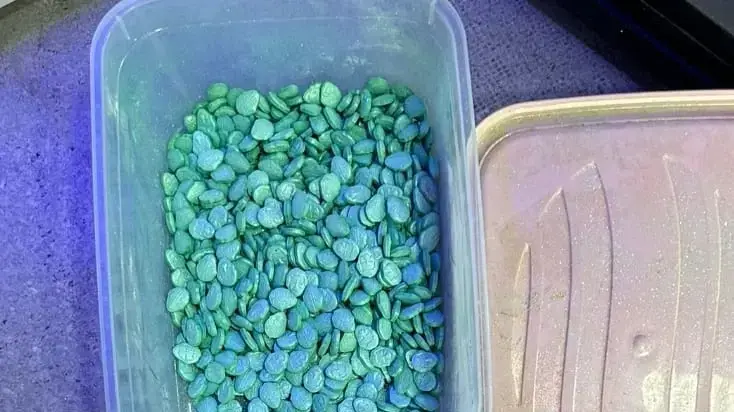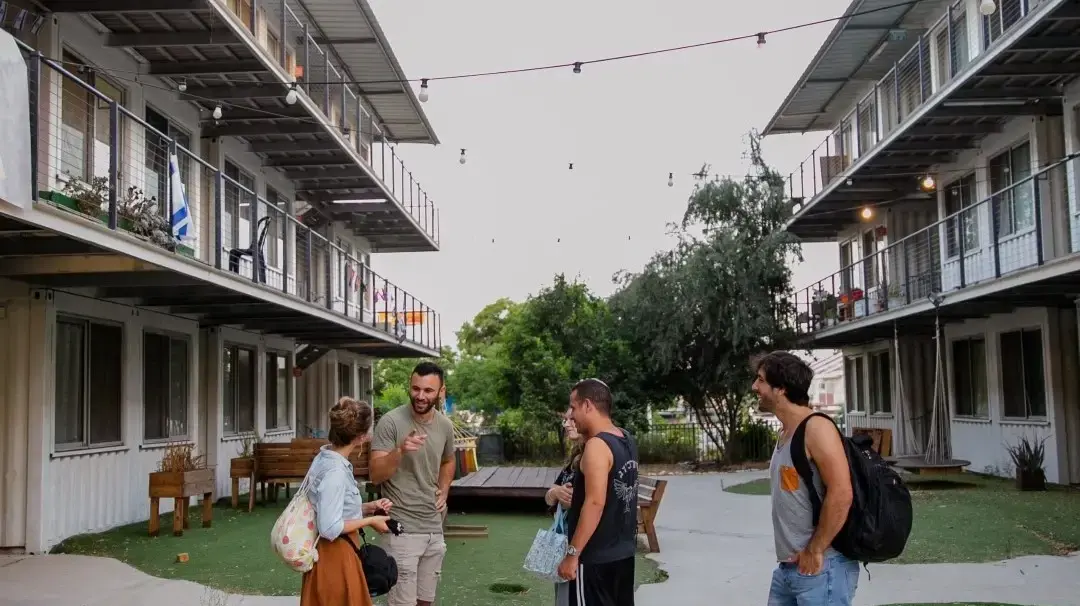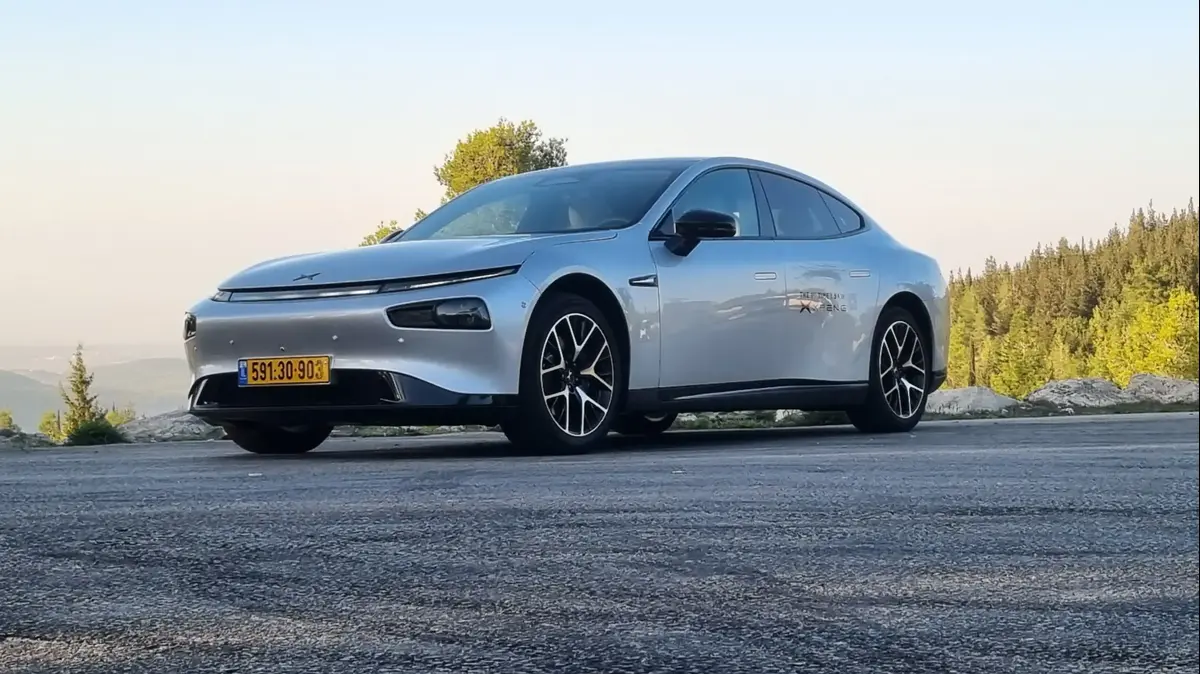The herds on the sides of the road are not just there.
Yair Abutbul, Central District Coordinator (Photo: KKL-Junk)
It is true that we are not in summer anymore, but fires have become the official center of trouble in Israel, and not only in the hot season.
Every year the number of fires in the open areas increases, and as a result there is a direct harm to humans and the earth, when different varieties of animals and plants are burned en masse.
In order to deal with the phenomenon, Kimet Israel Foundation established the "Pasture Unit", which, in cooperation with dozens of farmers from around the country, succeed in preventing fires in over 2 million dunams in aggregate.
We invite you to get to know the KKL-Junk grazing unit up close for the first time, which deals with fire prevention by tending herds in open areas all year round.
A new unit - an old threat
The KKL-Junk Grazing Unit was established three years ago to deal with the fact that the number of fires has increased dramatically in recent years. They work in the north, south and center in cooperation with farmers, owners of herds of sheep, cows and goats, who in a precise and pre-planned way graze their herds In the open areas of KKL-Junk, they feed on the grass, and by this they manage to prevent about 80% of the fires in the open areas.
The spread of fires is aided by weather conditions, primarily high wind power, low humidity and high temperature, wadi slopes and of course - rich dry vegetation that is the difference between a small fire and a large forest fire.
This vegetation is eaten by the grazing herds.
The national unit as a whole has about 10 people, but it is divided into three spatial units - north, center and south, where each unit has a manager and it works in cooperation with the KKL-Junk Forestry Department and the regional managers. While in the north of the country there has always been a grazing unit, the center And the south joined as mentioned several years ago, and the unit became a mandatory tool for the management of the forest area.
Make tours before the season and decide where to send the herds.
Haim Beitan, South District Coordinator (Photo: KKL-Junk)
Seasonal and temporary pasture
The northern region is the largest, and it includes about 75-80 percent of the grazing areas in the KKL-Junk forests. In the north, where 90 percent of the grazing land is cattle, in contrast to the center and the south, it is mostly permanent and non-temporary grazing, which means that the shepherd and his pasture stay in the area throughout the year "
In
the grazing unit, which consists of a national manager and three coordinators under him, we work in collaboration with the Ministry of Agriculture and the manager and we are actually the executive arm in everything that happens in the field," explains Oded Abutbul, the grazing coordinator in the northern region. "We are responsible for the construction of the facilities, fences, water troughs and pens, some of which are provided by the KKL-Junk framers. We are actually the ones who bring the contractors into the area to work. And in addition, we show the herd owners where their grazing area is, so that they don't accidentally enter private areas."
In the southern area, on the other hand, there is the largest amount of temporary pasture.
"The breeders, who are mainly Bedouin with us, receive a contract for grazing, and we give them an area according to the vegetation," explains Haim Beitan, the grazing coordinator of Bemerhav Darom.
"We and the KKL-Junk forester do a tour before the season, see the height of the grass and make a decision based on that.
The herdsmen get the field cell and they have to maintain the field in terms of equipment, but not only.
The herding dogs, for example, should be tied during the day - because there are hikers.
Camels, horses or cows are not allowed in some areas - only sheep, because they cause less damage.
The breeder knows his area cell and the boundaries." In addition, the owners of the herds should bring certificates that the herd is vaccinated.
In the central area that starts from Mikneam to Beit Govrin there is seasonal grazing and permanent grazing, with the herds being mixed with cows, goats and sheep.
"The forest of the forest is actually the one that determines the fluctuation of the herds in the field," explains Yair Abutbol, the coordinator of the grazing unit of the central area.
"We do a preliminary inspection before the shepherds enter the territory with the Ministry of Agriculture, the Green Patrol and the forester and see what the height of the grass is and what is the deadline for the pasture to enter the territory. And we determine when to enter the territory. At the same time, a grazing committee is held that discusses each and every shepherd and determines a work plan," he Explains.
"Due to the multiple crossings of the herds, the equipment of the shepherds wears out and so does the equipment in the field, so we renovate if necessary and take care of the breeders for licenses and contracts," explains Yair.
"The herds do the work we need."
Oded Abutbol North coordinator (Photo: KKL-Junk)
successful cooperation
On the other hand, KKL-Junk invests efforts and money and installs, for example, water lines that are effective for shepherds but also for the forest itself, and among other things, makes individual fencing around each and every tree when they are planted and are still small and the pasture can eat them.
"Fire prevention is of utmost importance, but we also protect shepherds that they have been here for years.
Our cooperation with the shepherds is a situation that is good for all of us.
Instead of buying food - which recently increased due to the war in Ukraine - the shepherds come and graze the area.
This way they get food and we protect the forest," says Beitan.
"This is a very interesting job," says Oded. "The most important thing is to protect the forests and the land, and the herds do the work we need."
Protect the Earth
Tags
KKL

